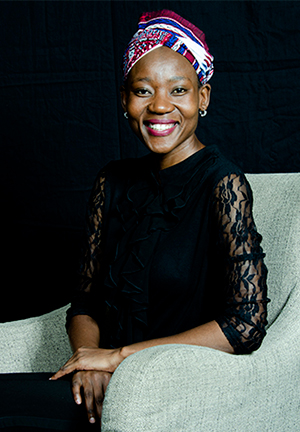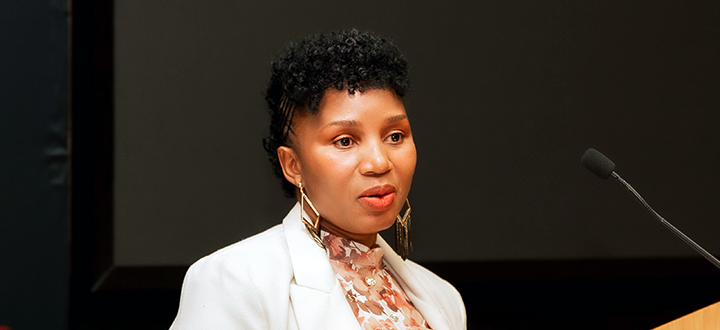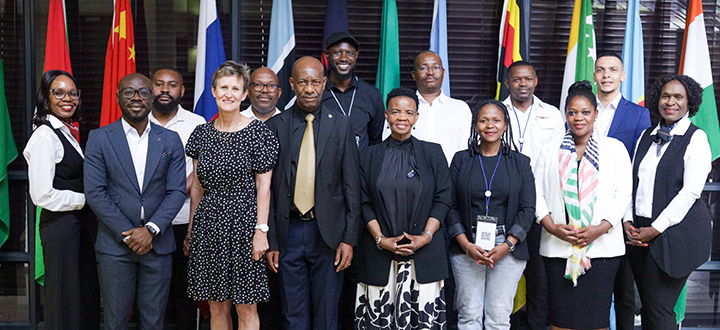College of College of Graduate Studies
A move towards an Africanised psychology

Prof Puleng Segalo
The School of Interdisciplinary Research and Graduate Studies hosted Prof Puleng Segalo, incumbent of the Chief Albert Luthuli Research Chair at Unisa, as the keynote speaker on African psychology in celebration of heritage month.
The webinar which served as a build-up to the second CGS Indigenous Epistemology Seminar Series, was aimed at showing the need to move towards psychology that is rooted in the context of people it claims to serve. By incorporating indigenous knowledge systems like proverbs, idioms, songs, art and performative engagements, approaches to how Unisa theorises and practises psychology can be broadened.
The dark history of psychology: An Afrikanist perspective
The keynote address, entitled "The dark history of psychology: an Afrikanist perspective", provided background on the advancements made by American social psychology, demonstrating how empirical methods and the construction of theories translated the problems of American society into psychological terms and made them an object of scientific inquiry. Prof Segalo highlighted the role that psychology played in advancing colonialism by expanding European rule in Africa to missionary and Christian education and subjugation through economic, political oppression and slavery.
Prof Segalo further discussed how psychology in Africa came as a continuation of European and American psychology, which contributed to the psychological warfare that established and maintained the colonial system. This meant that Africans had to find new ways of coping with both the physical and psychological violence of colonial rule and preserving some aspects of their knowledge systems.
Her remarks on the Afrocentric perspective in psychology reminded the audience that many societies in Africa continue to draw heavily on their traditional beliefs and cultural heritage. It is therefore important not to overlook this aspect and to consider it when teaching and practising psychology in African and indigenous contexts.
Recognising the Afrocentric perspective will also ensure that the practice of botho/ubuntu is realised. Botho is a concept that is deeply rooted in cultures where the interests of the community are put ahead of those of individual community members and where members feel connected to others and see themselves in others. Where botho is achieved, liberation psychology will encourage relatedness, thus emphasising the importance of the collective and not the individual.
Prof Segalo remarked that instilling pride and self-consciousness is critical within an education system since it will help people to understand who they are and how they are connected to others. It will also encourage a move towards a new psychology and spirit as part of resisting/rebelling against psychological and cultural imitations and imposed inferiority.
In closing, Prof Segalo highlighted the need to move towards a liberatory approach where multiple forms of being and knowing are acknowledged as legitimate.
* By Tonny Matjila, Research Training and Development Officer, College of Graduate Studies
Publish date: 2021-10-19 00:00:00.0


 Wings of opportunity: Bringing drones into the classroom
Wings of opportunity: Bringing drones into the classroom
 Visionary youth champion to address Unisa’s Innovation Festival
Visionary youth champion to address Unisa’s Innovation Festival
 Finding the strength to persevere
Finding the strength to persevere
 Disability awareness at Unisa: Disability is not inability
Disability awareness at Unisa: Disability is not inability
 Unisa symposium shares knowledge on building SA's aviation economy
Unisa symposium shares knowledge on building SA's aviation economy